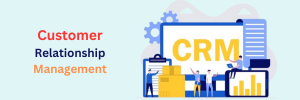In today’s ultra-competitive business landscape, companies are always looking for ways to get an edge over rivals. One key way to do this is by improving customer service and managing customer relationships more effectively. This is where CRM (Customer Relationship Management) software can provide a huge boost. CRM Software Development systems allow businesses to track all interactions and data about customers and prospects in one centralized platform. This gives customer-facing teams a 360-degree view of the customer journey and relationship history. With CRM software, companies can nurture leads, analyze customer behaviors, automate marketing tasks, and much more.

If you’re considering investing in CRM software development for your organization, here are some of the key benefits it can deliver:
Better Customer Insights and Personalization
CRM databases consolidate all customer information like contact details, purchase histories, service inquiries, marketing interactions, etc. This wealth of data provides valuable insights into customer needs, preferences, and behaviors. You can then leverage these insights to provide more personalized customer experiences, tailored marketing campaigns, and customized product recommendations. In turn, this helps increase customer satisfaction and loyalty.
Improved Sales & Marketing Alignment
By having a shared CRM system, sales and marketing teams can collaborate more effectively. Marketing can capture better quality leads and pass them to sales with full context. Sales can then continue nurturing those leads based on prior interactions tracked in the CRM. The seamless handoff and shared visibility prevents prospects from slipping through the marketing channel.
Boosted Productivity & Efficiency
CRM systems automate many routine tasks like data entry, lead routing and assignment, follow-up scheduling, report generation, and more. This reduces administrative overhead and frees up reps to spend more time on high-value sales and service activities. Productivity tools like mobile CRM apps also allow teams to work on-the-go and update customer information from anywhere.
Higher Customer Retention & Revenue
With real-time customer data at their fingertips, support teams can handle queries faster and deliver more personalized service. The analytics and reporting capabilities in CRM platforms also allow you to identify churn risks, find cross-selling opportunities, and take proactive steps to boost retention. All of this drives higher customer lifetime value and revenue for your business.
Streamlined Business Processes
CRM systems act as a centralized hub for automating and streamlining processes across multiple business functions – marketing, sales, service, operations, analytics, and more. From lead nurturing workflows to case management protocols to custom approval flows, CRM software allows you to standardize best practices and optimize efficiency across teams and departments.
Scalability and Integration
Most modern CRM platforms offer scalable, cloud-based architectures that can easily handle growth in users, data volume, and workloads. They also provide robust integration capabilities to connect with other critical business tools like email, social media, accounting software, e-commerce platforms, and more. This allows the CRM to serve as the nexus of a cohesive technology ecosystem.
With advantages like these, it’s no surprise that CRM adoption continues to rise rapidly across industries. In fact, the global CRM market is expected to grow to $113.46 billion by 2027. Companies that invest in the right CRM software development and implementation can gain a major competitive edge through better customer intelligence, engagement, and service delivery.
The bottom line is that a robust CRM system is no longer a nice to have, but a must have for modern, customer-centric businesses. So if you haven’t jumped aboard the CRM train yet, now is the time to evaluate the potential benefits for your organization. CRM is one of the most valuable departments of any organization. CRM system helps to build company brand image in market and also able maintain long lasting relationship with potential consumers.








